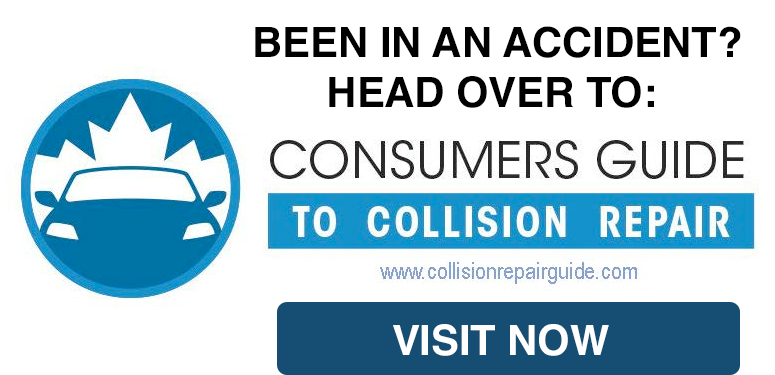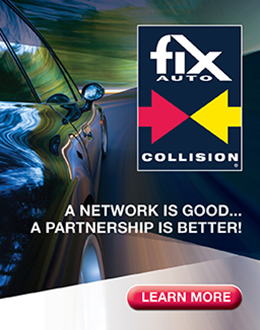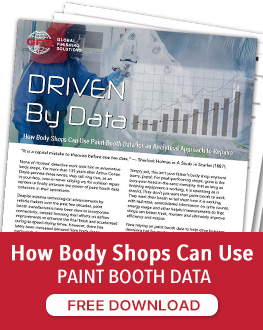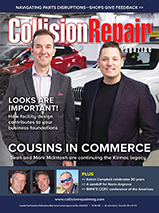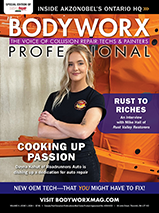By Jeff Sanford
Toronto, Ontario — March 9, 2018 — In today’s Friday Fun: An auto tech has a grisly surprise, Ford’s aluminum bet, diesels sales plunge in Europe, and much, much more!
An auto mechanic at a Maine dealership had a fright last week. The repairer was looking over a vehicle that had just been brought in. When he popped the trunk, he found a dead body in the back of the car. According to a story in the Bangor Daily News detectives responded. The car had been abandoned in the parking lot of a Walmart store and had then been towed to the dealership. Officials were not able to identify the body, which was to undergo a full autopsy to determine the cause of death. Creepy!
-RCMP in British Columbia carried out a crackdown on distracted driving in the province last week. Only moments after setting up a checkpoint officers tagged the first offender. When police pulled over a driver for a broken headlight they found the female driver had two cell phones in her lap. She was also driving without a licence or insurance and ended up having her car impounded. The crackdown on distracted driving will last through the month of March. According to a news report the RCMP handed out 35 tickets in just two hours. The police force notes that distracted driving is now the second leading cause of fatal collisions in B.C. An average of 78 people die each year as a result of not paying attention while behind the wheel.
The B.C. government is also raising the penalties for distracted driving as the province hustles to deal with the massive deficit at ICBC. The government announced this past week it will seek out public feedback on “whether bad drivers should pay higher ICBC premiums so good drivers can pay less for their auto insurance.” Several media outlets reported on this latest government initiative. The government will accept public comments through an online survey, by email or by mail. The comment period is open until April 5th. Citizens of the province are being asked to have a say on how the auto insurance plan should work. Among other questions the survey asks whether drivers who get into at-fault crashes should pay more for insurance, whether there should be a cap on at-fault vehicle damage claims and whether collisions should be “tied” to the driver of the vehicle rather than the owner. ICBC is on track to record a loss of $1.3 billion this year. According to one media report, “The growing financial pressure is being blamed on a rapid increase in the number of collisions in the province, as well as the rising costs of those claims.”
-A study from Mitchell International released last quarter compares 2016 and 2017 models to their predecessors. According to the study, “putting parking assist sensors, wave radar systems, front-end and rear-end cameras, as well as more elaborate front lamp systems is adding an average of 19 percent to the repair costs for front-end or rear-end repairs.” The data suggests that, “although not every newly redesigned vehicle experienced an increase in claims severity, most do. The biggest factors driving up costs were the increased use of sensors, radar systems (especially on luxury vehicles) and headlamps on redesigned vehicles.” A report on the study in an insurance industry publication suggests, “underwriters may want to consider additional repair cost information to price policies for the latest generation of vehicles more accurately. Traditionally, actuarial departments have used other factors to price insurance policies for new redesigned vehicles. But this may need to change with the advent of special technology like high-strength steels, aluminum and carbon fibres, as well as advanced technology now being introduced rapidly into the latest designs.”
Also from the insurance industry: A blog post at an industry publication suggests that some insurance agencies prefer 6-month long auto insurance policies. The post goes on to say that these shorter auto insurance terms are, “slowly becoming the norm, with agencies preferring to issue 6-month long contracts instead of the year-long policies that many car owners are used to. A shorter term allows the agency to quickly adjust rates in case they charge too little and the policy becomes unprofitable. It also helps them collect data about a driver in a much more efficient way and instead of waiting for a year, they can adjust rates as needed much faster.” There was no mention of whether or not policy holders would desire such terms.
-Is the era of carbon fibre auto bodies beginning to emerge? It was reported recently that the bed of the 2019 GM Sierra Denali will be the first production pickup truck with a bed made of advanced carbon fibre. The Denali is GM’s high-end pick up. According to a news story, “by switching to the lighter, more expensive material, GM is aiming to push itself ahead of Ford, Toyota, Nissan and everyone else scrapping for a piece of the profit-rich pickup market. The new Sierra is 350 pounds lighter than its predecessor (which ranged from 5,211 to 5,529 pounds, depending on the model). That’s partly because the doors and hood [are made] from aluminum. But the key move was using carbon fibre for the bed, which dropped 62 pounds.”
Ford famously used aluminum in its big selling pick up, the F-150. The use of so much aluminum in a mainstream vehicle like the F-150 sent shock waves through the collision repair industry. Many shops had to acquire the specialized equipment needed to repair aluminum. But a few years on some wonder whether Ford’s shift has worked out as the company hoped. A major story in the business section of the New York Times this week took up that question. According to the Times, “Ford Motor made a daring gamble when it started selling a new version of its F-150 pickup truck made mainly of aluminum rather than steel. No carmaker had ever committed to using aluminum so widely in such a high-volume, high-profile vehicle. Ford expected aluminum to give its truck a critical advantage in an era of tougher fuel-economy standards and rising gasoline prices. The company also thought the truck would pull customers away from General Motors and Fiat Chrysler Automobiles, and command prices high enough to increase Ford’s profit, despite aluminum’s higher cost.” But the revolutionary switch seems to be giving Ford less of an edge than it had hoped according to the story. “With moderate gasoline prices, fuel economy is no longer a persuasive factor for many truck buyers. While sales are brisk, F-Series trucks – including the F-150 and the brawnier Super Duty – have only slightly increased their share of the full-size pickup truck segment since the aluminum models arrived. Their share is actually lower now than it was. Moreover, the lightweight metal has become one of several factors weighing down Ford’s profitability. In 2017, the company’s income in North America fell 17 percent, in part because of rising steel and aluminum prices.” Since Ford made the shift aluminum prices have risen more than 20 percent.
Prices seem likely to increase further as the Trump administration goes ahead with controversial tariffs on aluminum and steel. Trump’s recent announcement that he would apply the tariffs sent Ford’s shares down 3 percent. According to a source in the story the shift to aluminum has not been the boon that Ford hoped. Ford “thought gas prices were going to go to $6 or $8 per gallon, and therefore having a couple miles per gallon more would be a big market-share mover that consumers would pay for,” a financial analyst was quoted as saying. “It’s one of those managerial decisions that, if you had a crystal ball on the future, you might make differently.” Ford’s president of global operations, was also quoted in the story, acknowledging that the increasing cost of aluminum had become a bit of an issue. “It is not the biggest issue, but it is an issue,” he said. The story goes on to note that the aluminum F-150 was, “in the planning stages when gasoline spiked to $4 a gallon and the Obama administration moved toward tougher fuel-economy standards. But by the time the first aluminum F-150s were produced in late 2014, gas prices were closer to $2 and fuel economy was less of a concern for consumers.” Another analyst quoted in the story said that the move to aluminum “hasn’t been a disaster. But maybe not a home run, either.”
-Over in the U.K. the sales of diesel powered cars are falling off a cliff. The recent emissions scandal involving European diesel cars is having an effect on consumers. “In 2017, U.K. car sales fell, marginally, for the first time in five years – but diesel numbers tumbled spectacularly, by 17.1 percent,” according to a report. Said a source, “Consumers have been spooked.” Predictions are that the share of diesel cars in the U.K. market will drop from one in two cars sold in the first half of this decade to one in seven by 2025. “On this, the industry seems to have collectively shot itself in the foot,” said the source. Resale values for diesel cars are falling as well, with the average price of a used diesel vehicle falling 5 percent between just the first and final quarter of 2017. The price of used gasoline powered cars was up by 10 percent over the same time. According to the source, “In and around the M25, there’s a massive switch to hybrid and petrol – less so outside. The conversation is, I want out of my diesel and into a petrol.”
-Hyundai’s new luxury brand Genesis has come out at the top of the annual ranking of new vehicle brands by major U.S. magazine Consumer Reports. Not bad for a company that was mocked for shoddy quality when its cars first appeared in North America in the ‘90s. So far Genesis offers only two models. But millions of people who are considering buying a new car consult the Consumer Reports survey. The future looks bright for the new brand.


